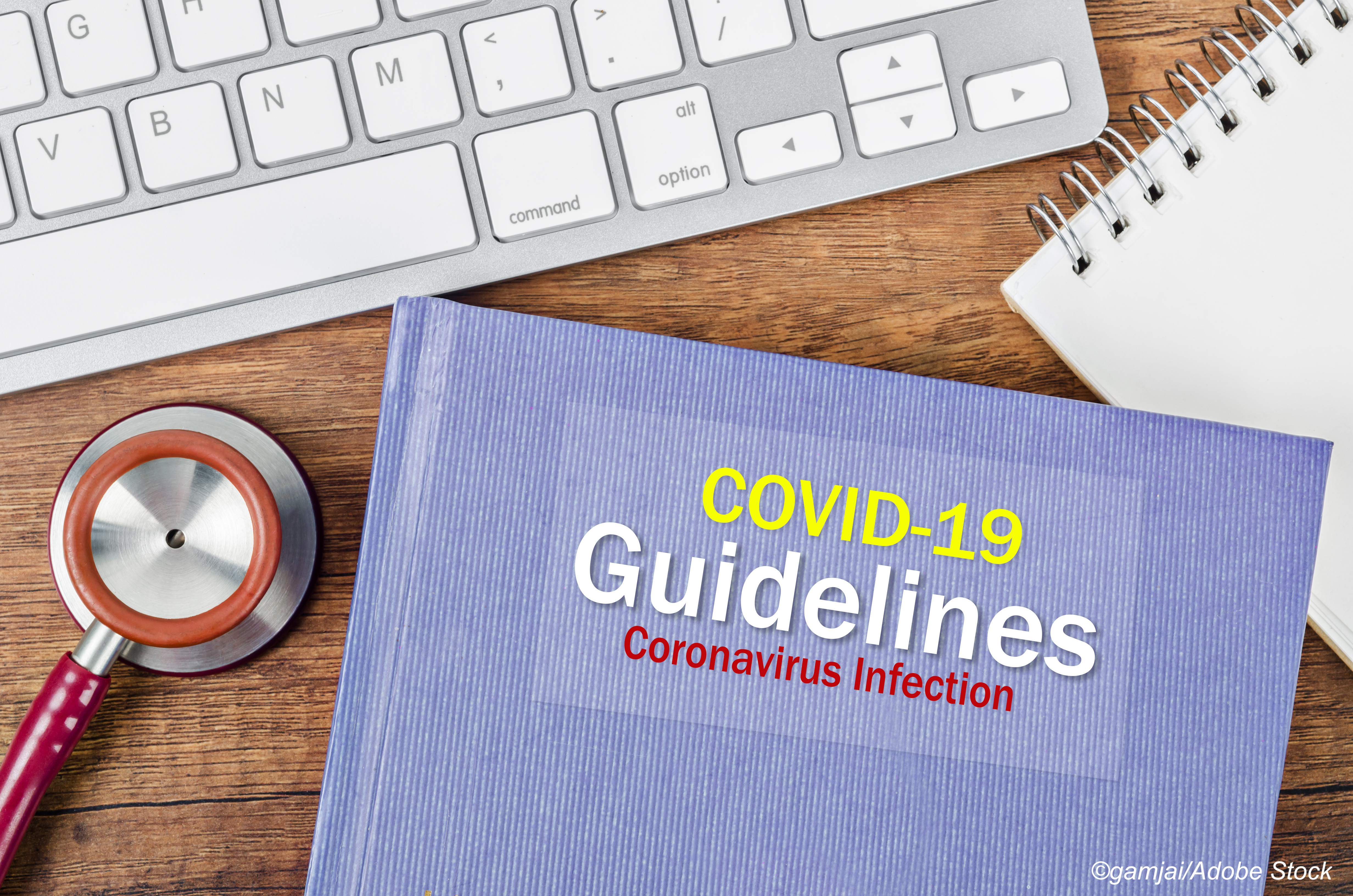
Dozens of clinical practice guidelines for the pharmaceutical treatment of patients hospitalized with Covid-19 have been issued during the pandemic, but most have been of poor quality and only a few met the National Academy of Medicine standards for trustworthiness, according to a newly published systematic review.
Of the 32 clinical practice guidelines on Covid-19 treatment included in the analysis, just five were found to use best guidelines or reporting practices according to Agency of Healthcare Research Quality (AHRQ) guideline trustworthiness standards, with the remaining 27 (84%) found to be low quality.
Only seven (21.9%) reported funding sources, 12 (37.5%) reported conflicts of interest, and only five (15.6%) included a methodologist on the research team, described a search strategy or study selection process, or synthesized the evidence.
While 14 of the clinical practice guidelines included in the review made recommendations for or against specific pharmacologic treatments, confidence ratings for the quality of evidence were infrequent, with just six describing potential benefits and harms and five grading the strength of the recommendations.
Writing in the journal JAMA Network Open, published online Dec. 10, researcher Karen E. Burns, MD, of St. Michael’s Hospital, Toronto, Canada, and colleagues, wrote that approaches to future Covid-19 treatment guidelines “that prioritize engagement of a methodologist and multidisciplinary collaborators from at least two World Health Organization (WHO) regions may lead to the production of fewer, high-quality clinical practice guidelines that are poised for updates as new evidence emerges.”
In commentary published with the review, Karina W. Davidson, PhD, of Feinstein Institutes for Medical Research, Norwell Health, Manhasset, New York, and colleagues, wrote that the findings highlight “the methodological weakness of the guidance available to treat hospitalized patients with Covid-19.”
Davidson is the current chair of the U.S. Preventive Services Task Force (USPSTF), but her commentary reflected her own views and not those of the task force.
In an interview with BreakingMED, Davidson noted that many of the low-quality guidelines had conflicting recommendations regarding the use of specific drug treatments. For example, seven of the low-quality guidelines recommended hydroxychloroquine as a treatment for Covid-19, while two recommended against using the drug. And six low-quality guidelines recommended treatment with lopinavir plus ritonavir, while two recommended against use of the combination antiviral HIV therapy.
Davidson told BreakingMED that a major goal of the review and commentary is to raise awareness among clinicians about how to best assess the quality of the Covid-19 treatment guidelines they come across.
“Trustworthy guidelines take time and diligence and a lot of a priori planning,” she said. “With Covid-19 we have had to weigh the urgency of getting guidelines out against the slowness and rigor that is required to do a thorough job.”
Davidson cited the WHO’s living guidelines for Covid-19 treatment as a high-quality, one-stop source for up-to-date information on Covid-19 therapies.
“This is the state of the art,” she said, adding that the guidelines are constantly being updated to reflect the latest research.
Of the 32 clinical practice guidelines included in the review, 25 (78%) were developed by professional societies from a single WHO region—mostly the United States and Europe.
Although nearly two-thirds of the clinical practice guidelines included multidisciplinary guideline panels, fewer than 20% of panels included a methodologist.
Burns and colleagues assessed the quality of the guidelines included in the review based on the AHRQ’s 15-item National Guideline Clearinghouse Extent of Adherence to Trustworthy Standards (NEATS).
“The 15-item NEATS instrument assesses adherence to National Academy of Medicine standards,” they wrote, adding that the NEATS tool “has been shown to have high inter-rater reliability (weighted κ=0.73) and external validity.”
Davidson and colleagues noted that the ’highly rigorous” review of clinical guidelines by Burns and colleagues offers important suggestions on how to improve future guidelines.
“Ongoing high-quality efforts to disseminate guidance is needed as the creation of trustworthy clinical management guidelines is one of the highest priorities, especially during medical and public health crises and when evidence bases are quickly accumulating,” they wrote.
The study authors did note some limitations of their study, including only reviewing guidelines published in peer-reviewed journals; not contacting guideline authors to verify methodology; and not having information on whether the guidelines were peer reviewed.
-
Most clinical practice guidelines for the treatment of patients hospitalized with Covid-19 have been of poor quality and only a few met the National Academy of Medicine standards for trustworthiness, according to a systematic review.
-
Of the 32 clinical practice guidelines on Covid-19 treatment included in the analysis, just five were found to use best guidelines or reporting practices according to AHRQ guideline trustworthiness standards.
Salynn Boyles, Contributing Writer, BreakingMED™
No funding source was listed for this review. Burns reported holding a career award from the Physician’s Services Incorporated Foundation. Researcher Neill Adhikari reported serving as chair for Covid-19 guideline panels convened by the WHO. Editorial writer Karina W. Davidson is chair of the US Preventive Services Task Force, but was not representing USPSTF in her commentary. Davidson and the other editorial writers’ reported grant support from the NIH’s National Institute of Aging.
Cat ID: 190
Topic ID: 79,190,730,933,190,926,192,927,151,928,925,934


